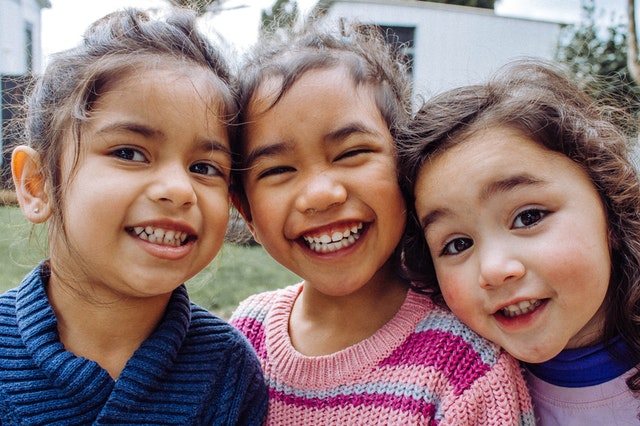The first years of your child’s life are the most important in terms of speech and language development. If you child has hearing loss, it’s imperative that they are treated right away. Research shows that treating hearing loss before an infant is six month of age yields the best outcomes, which is why newborn hearing screenings have been implemented across the U.S.
How Common Is Childhood Hearing Loss?

While research varies, a 2016 survey by the Centers for Disease Control and Prevention (CDC) shows that approximately 1.7 of every 1,000 babies is born with hearing loss – commonly, to two hearing parents.
The CDC also reports that about five of every 1,000 children between ages three and 17 have some level of hearing loss.
What Causes Childhood Hearing Loss?
Congenital hearing loss (meaning present at birth) has many possible causes, though the exact one can be difficult to pinpoint. Genetic factors may include:
- Autosomal recessive hearing loss. This accounts for 70 percent of cases of genetic hearing loss. It occurs when both parents carry a recessive gene for hearing loss that gets passed to the child.
- Autosomal dominant hearing loss. This rarer cause accounts for about 15 percent of cases of genetic hearing loss and results when a child inherits one parent’s dominant gene for hearing loss. The parent may have hearing loss themselves or another condition with hearing loss as just one of the symptoms.
- Genetic syndromes. These include Usher syndrome, Treacher Collins syndrome, Waardenburg syndrome, Down syndrome and more.
Non-genetic factors for congenital hearing loss include:
- Birth complications/premature birth.
- Nervous system/brain disorder.
- Ototoxic medications taken during pregnancy.
- Infection during pregnancy.
- Maternal diabetes.
- Drug, alcohol or tobacco use during pregnancy.
A child may also develop hearing loss after birth. Reasons include:
- Perforated eardrum.
- Infections (meningitis, measles, mumps, whooping cough).
- Ototoxic medications.
- Head trauma.
- Noise exposure.
- Chronic/recurrent ear infections.
- Secondhand-smoke exposure.
Can Babies Wear Hearing Aids?
The most important reason for detecting hearing loss early in children is so that an audiologist can treat it. In most cases, hearing aids are an effective treatment; high-powered hearing aids are available for children with profound hearing loss, although bone-anchored hearing devices and cochlear implants are also available when other options have been exhausted.
Treating hearing loss is life changing for both you and your child. Watch as baby Georgina Addison hears her parents for the very first time after her first hearing aids are turned on:
For more information about identifying and treated hearing loss in infants, call Heuser Hearing Institute today!